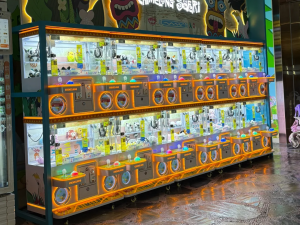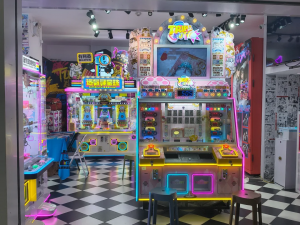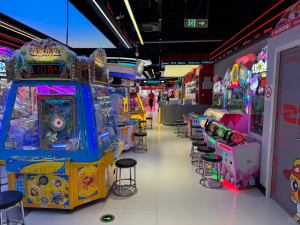Starting a VR theme park business can be an exciting venture, but it requires careful planning and consideration of various factors. Here’s a step-by-step guide to help you get started:
1.Market Research:
- Identify your target market, such as gamers, families, tourists, or corporate clients.
- Research the demand for VR experiences in your area and potential competitors.
2.Business Plan:
- Outline your business objectives, target market, pricing strategy, and revenue projections.
- Determine your startup costs, including equipment, space rental, marketing, and personnel expenses.
- Develop a solid marketing and sales strategy to attract customers and drive business growth.
3.Location:
- Choose a suitable location with high foot traffic or easy accessibility for your target market.
- Consider the size and layout of the space, as well as any specific requirements for VR setups and safety regulations.
4.Equipment and Setup:
- Choose a reliable VR equipment supplier that can not only provide high-quality VR arcade machines, but also provide you with a one-stop VR theme park design solution.
- Invest in high-quality VR equipment, controllers, computers, and other necessary equipment.
- Set up VR stations or booths with comfortable seating and adequate space for users to move around safely.
- Ensure proper ventilation and lighting in the facility for a comfortable experience.
5.Content Selection:
- Curate diverse VR experiences and games. A variety of interesting VR arcade machines can be placed in the experience hall, such as 9D VR cinema, VR shooting machine,VR racing car, VR ski simulator and other VR game equipment. Because this can appeal to a wide range of interests and age groups.
- Consider licensing popular VR titles or developing custom experiences exclusive to your center.
6.Safety and Training:
- Implement safety measures to protect users from accidents or injuries,such as providing clear instructions and enforcing age restrictions.
- Train staff members on how to operate VR equipment safely and assist customers with their VR experiences.
7.Legal and Regulatory Compliance:
- Obtain necessary permits, licenses, and insurance coverage for your business.
- Comply with health and safety regulations, as well as any local zoning or building codes.
8.Launch and Promotion:
- Host a grand opening event to generate buzz and attract customers to your VR theme park.
- Utilize various marketing channels, such as social media, online advertising, and partnerships with local businesses, to promote your business.
- Offer special promotions, discounts, or loyalty programs to incentivize repeat visits and customer referrals.




